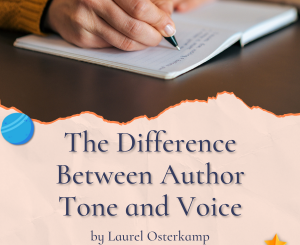Finding Your Voice for Writers for Children and Teens
FINDING YOUR VOICE
by Laura Backes, Children’s Book Insider, http://www.write4kids.com/feature3.html
One of your most powerful tools as a writer is not your vocabulary, your mastery of grammar or even your fancy computer — it’s your voice. Your unique blend of description, character and style allows you to talk to the reader through the printed word. Without a voice, a manuscript may have an exciting plot, interesting characters and a surprise ending, but it might not get published. The voice is what beckons the reader to curl up with a book and whispers, “Pay attention. I’m going to tell you a story.”
Editors are always searching for new voices. Yet, when pressed, most editors find it hard to describe exactly what a voice is. Which is why the writer’s voice isn’t something that can be taught, but it is something you can acquire with practice. Your voice is already there, inside your writing, but it may be covered up with ideas of what you think writing is all about. Many beginners work very hard at trying to sound like a writer. They pore through the thesaurus looking for fancy substitutions for ordinary words; they create complex sentences bursting with flowery descriptions. They’ve forgotten that their goal is to communicate with a child and instead are in love with the way their words look on the page.
Big words aren’t important, but rather the way those words are put together. The essence of the story must come through. This often involves peeling away layers with each revision until you get to the core of what you’re trying to say to the reader. Write the way you talk. Your speaking voice will lead you to your writer’s voice.
Patricia MacLachlan has a clear, authentic writer’s voice. Her descriptions are comprised of ordinary words linked together in such a way as to allow the reader to get inside the character’s head and see what the character sees. The reader feels like he’s there, inside the story, as in this excerpt from Arthur, For the Very First Time:
The house was a book, and Uncle Wrisby and Aunt Elda the characters. From the moment that Arthur walked in the front door, he was a new character…a willing captive in the life story of his aunt and uncle. He noted, recorded and stored in his head the old colored-glass windows, the long hallways and the worn stairways with sunshine at the top.
When writing in first person, you must assume the voice of your main character. Forget what you as an adult would notice, abandon your own vocabulary and sentence structure. You no longer exist. In Jon Scieszka’s Your Mother Was a Neanderthal from “The Time Warp Trio” chapter book series, the narrator takes control of the story from the opening lines:
It was like nothing on earth we had ever seen before. Fred, Sam, and I stood in front of a forest of strange trees and giant ferns. A rocky cliff rose behind us. A volcano smoked ahead of us.
But we didn’t really notice any of that at first. The first thing we noticed was that the three of us were standing around completely, unbelievably, and absolutely naked.
Your voice may change depending on who your main character is and the kind of story you’re writing. But in any case it’s essential to get down to the precise details that make each character and experience unique. These details are usually simple and seemingly ordinary, but make the story real. In Cynthia Rylant’s picture book, When I Was Young in the Mountains, she recalls particular events from her childhood with a clarity that sounds as if a child is telling the story:
When I was young in the mountains, we listened to frogs sing at dusk and awoke to cowbells outside our windows. Sometimes a black snake came in the yard, and my Grandmother would threaten it with a hoe.
If it did not leave, she used the hoe to kill it. Four of us once draped a very long snake, dead of course, across our necks for a photograph.
The elements of a book — the plot, characters, setting, description — are all important, but alone they make up the bare bones. With a voice, a book becomes more than words on a page; it becomes a story. The writer’s voice breathes life into a book and gives it a soul.
Would you like to get fresh, exclusive insight like this every month? Click here for a special offer!





